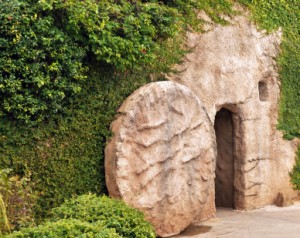
When I’m litigating a case, I try to find out early in the case the other side’s best argument. I may not know all the evidence they will present at trial, but I do know they know, and therefore the argument they lead with is the one they usually think gives them the best chance of winning.
In Jerusalem at the time of Jesus’ crucifixion, the “other side,” the opponents of Christianity, were the Jews. They had a vested interest in their religion. This was particularly true of the religious leaders who made their living by their religion. The Jewish leaders’ opposition to Christianity is best shown in that they were the ones who were responsible for turning Jesus over to the Romans for crucifixion.
After Jesus’ resurrection, the argument the Jews decided upon to disprove the resurrection was that Jesus’ disciples had stolen the body. Given what the Jews had to lose, we must conclude this was the best argument they had. There is something else we can know: It must have been undisputed the tomb was empty.
The easiest way to disprove Jesus’ resurrection would have been to march to the tomb and produce the body. That they didn’t means the tomb was definitely empty. Second, it must also mean there was no dispute about where Jesus had been buried.
So, the Jews said Jesus had not been resurrected from the dead but that the disciples had stolen His body from the tomb.
There’s one problem with this argument. Actually, there are a number of problems with this argument but one very, very big one.
The disciples, the same disciples the Jews said stole Jesus’ body from the tomb, ended up giving their lives in martyrdom based on the truth of the resurrection. All they had to do to avoid martyrdom was to deny the resurrection, to deny Jesus was who He said He was.
Some might argue that people throughout history have given their lives based on mistaken ideas about God. I agree.
The difference here is that if the disciples stole the body of Jesus, that means they gave their lives for something they knew was a lie. That is, of course, absurd.
The better explanation, and the one that is consistent with the disciples’ transformation from despair and timidness to joy and boldness is the historical fact of the resurrection. GS
